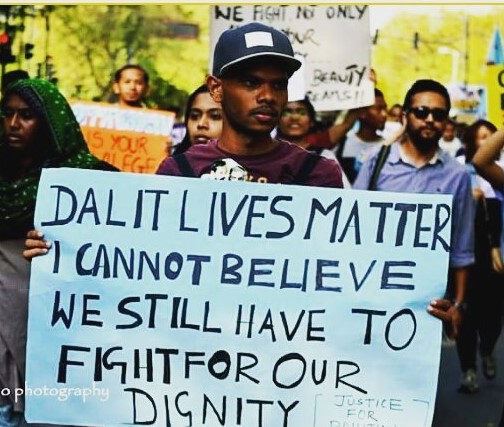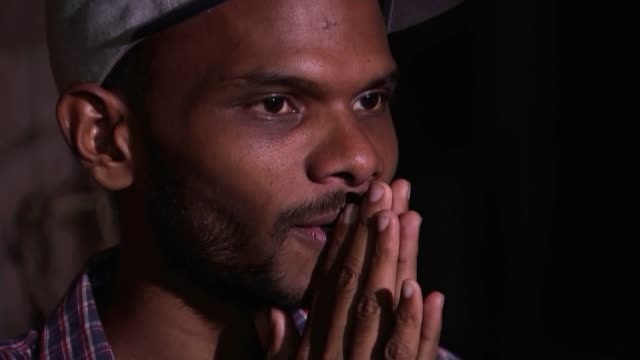
Sumeet Samos is an anti-caste rapper and an activist from Odisha, India. His rap fiercely confronts the caste system with a searing critique of caste discrimination.
Shalini S, TwoCircles.net
Born into a Dalit Christian family Sumeet strongly believes that “conversion is a form of liberation from the caste system.”
Talking to TwoCircles.net, Sumeet shared about his life as a Dalit Christian living with “double consciousness” and his journey from Jeevan Jyoti, a boarding school in Odisha to his recent selection in University of Oxford and SOAS, University of London.
Sumeet Samos is an anti-caste rapper and an activist. He is also an artist at Radio Live, France, a platform created by radio journalists and producers Aurélie Charon and Caroline Gillet to bring youths from different socio-economic backgrounds and from different countries to share their lived experiences. He also writes for The News Minute and Maktoob Media.
Currently at his home in Tentulipadar, Odhisha and he is looking forward to spending his summer at Oxford.
Sumeet spoke about the discrimination he faced in different phases of his life. “As a child, I was humiliated and insulted,” he says.
The virulent caste system behind the discrimination he faced started to sink in after his undergraduate studies. The realization that the caste system was responsible for much of the social neglect of his communicated dawned on him after the unfortunate death of Rohith Vemula. The death of Vemula sparked agitation among the students’ community all over the country.

“It was anger that made me resist. One day I went back to my hostel and vented my heart out on my Facebook page and slept. The next morning there were lots of views on the video and people started commenting that I was a Dalit rapper,” Sumeet says.
Talking about the particular incident that triggered him, Sumeet said, “There is a mall behind our university and the watchman there did not allow me to enter the place. It wasn’t the first time this happened. I didn’t know if it was my looks or clothes. It was alarming and I had enough.”
“The presence of Dalits in public and private spheres is regulated by caste,” he says and the mall wasn’t the only space in which he was denied entry. Sumeet recalled several incidents from his early education where students from his community always sat behind in the classroom and how during Pujas, his classmates wouldn’t eat the food served by him.
“It was not just the students, the teachers would look at us with disgust, and would call us by names in the corridors. They will pass comments that the students from my community didn’t deserve to get educated,” he added.
However, Sumeet did not restrict himself despite the harassment he faced. He would go to Sunday markets as a child and buy quiz books. “There used to be a box full of books in our school. I would take one home to read,” he says. “And in JNU I started with the works of G. Aloysius and began to read more literature written by Dalit scholars and writers, and also books on Christian experiences,” he adds.
Sumeet attributes Christian gatherings in his settlement as a reason for his penchant for singing and dancing. “We gather for communion and sing and dance. Ours is a vibrant community,” he said.
He says that his community members are strong and cohesive. “There is no caste inside our Dalit Christian settlement but when I go out of it, I experience cognitive dissonance,” he says.
Sumeet considers being born into a Christian family as an asset. Faith is where he draws his source of strength. He quotes Du Bois’ “double consciousness,” and adds “I have Dalit consciousness against caste and a Christian consciousness in life.”
Though he has faced untouchability in modern forms and it’s different manifestations in different situations, Sumeet agrees that his faith in his religion has given him freedom.
Talking about his days in JNU, he says that it was his journalist friend Dhrubo Jyoti who referred him to be a part of French Radio Live.
The work requires him to go to France twice a year and perform over 2 to 3 times a week to a live audience in theatre festivals, concerts and radio performances. As an artist, Sumeet talks about his personal life, revelations, and caste and India.
As a musical artist and rapper, he has also released several albums in India, starting Ladai Seekh Le! (Learn to resist) to Jaati (Caste). The success he attained is the fruition of yearlong resistance and hard work. In times where opportunities weren’t easily available, right after his higher secondary education, Sumeet started looking for jobs in different states. “I was exhausted one day and took a train to Delhi, while I was working in a hotel there, the owner of the hotel advised me to apply in JNU.”
“Again in recent times, it was my friend Ritu who called me and told me why don’t I apply for Oxford and I saw no reason why I shouldn’t,” he said. “I believe in signs. Earlier it was the hotel owner and now it was my friend, so I thought it must be some sort of cosmic indulgence,” he says with a laugh.

INT
Sumeet Samos (Rapper) interview SOT
Sumeet got offer letters from both the universities he had applied to – the University of Oxford and SOAS. For his thesis he plans to study, “Caste, Central University spaces and Dalit Student politics in Contemporary India tracing the formation of Ambedkar Student’s Association in Hyderabad Central University to Birsa Ambedkar Phule Students Association in JNU.”
The meritocratic notion of those who have capabilities to attain success has become a crucial joke in Indian society driven by a caste system posing inherent contradictions to students from other caste groups to enter into educational spaces and other major establishments. New research has found that “institutions of national importance” in India are dominated by Brahmins with no proper implementation of reservation. In times like this, Sumeet’s assertion as a Dalit Christian and his constant effort, hard work, resistance and the yearning of having seen his people living on the fringe and to educate them, he has claimed his space righteously in the world’s most prestigious universities.
Sumeet has confronted the idea of meritocracy as a caste claim.
Many of his friends and acquaintance expressed great happiness over this milestone. “Students from Dalit community lack guidance and support. They do not apply abroad due to economic factor. They are not aware of the existing scholarships. Sumeet is inspiring. Many youngsters are already taking guidance from him. We will educate, agitate and organize,” his friends say.
Sumeet’s life itself seems like a paragon of his own lyrics: “We build houses, we till your lands, we produce your food, we the artisans, it is our sweat and blood, so here you stand, don’t teach us merit, you good for nothing clans” (Album: Caste 101).

